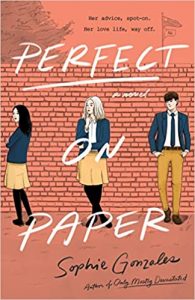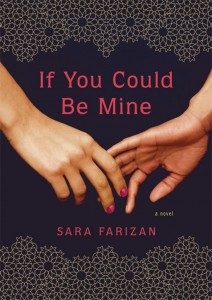Amazon Affiliate Link | Bookshop.org Affiliate Link
Darcy Phillips secretly runs the relationship advice service that comes from the mysterious locker 89 at her school. When Alexander Brougham discovers her secret, he enlists her help in getting his girlfriend Winona back. Everything becomes complicated when her secret gets out, including how she used the locker for selfish reasons. While Darcy prides herself on her 95% success rate, she still has a lot to learn about people, relationships, and herself.
There’s so much teen drama that could easily delve into cringe territory. But Gonzales uses great finesse to illustrate how complicated and messy emotions can get. The characters all make frustrating mistakes, but her deft writing leaves room for compassion. At every turn, she gives her characters the chance to learn and grow.
The back and forth enemies to lovers between Darcy and Brougham is absolutely delicious. Perhaps calling it enemies to lovers is a bit strong. It’s more like moderately annoyed with each other to smitten. Still, seeing each character unravel to one another with every moment they spend together does a great job portraying how hard it is for some people to let others in. These are both characters that don’t let many people see their true selves often, so to do that for each other creates a beautiful romance you can’t help but get wrapped up in.
A cast of queer side characters makes it all feel like a family within this school community. There’s Ainsley, Darcy’s sister who’s transgender; Ray, the other out bisexual in their school; Finn, Brougham’s gay best friend; and a bunch of other students and their teacher Mr. Elliott part of the Queer and Questioning (Q and Q) Club.
While Darcy spends the majority of the book doling out relationship advice, both romantic and platonic, she has a hard time seeing herself and her relationships. She puts her best friend Brooke on a pedestal and calls it love. She fails to see her own shortcomings. She jumps to conclusions about Brougham and sees what she wants to see. But throughout the whole story, you keep wanting her to get better. And she does.
Gonzales creates moments that touch on tough subjects like divorce and fighting parents, and how those relationships at home affect the people these characters become. She also weaves in confronting biphobia, both from fellow queer characters and internalized by Darcy. She begins to question her bisexuality and if she belongs to the queer community if she has feelings for a cishet boy.
There’s a lot of angst and anxiety, but always a glimpse of hope for these characters.
Trigger warning: Biphobia


